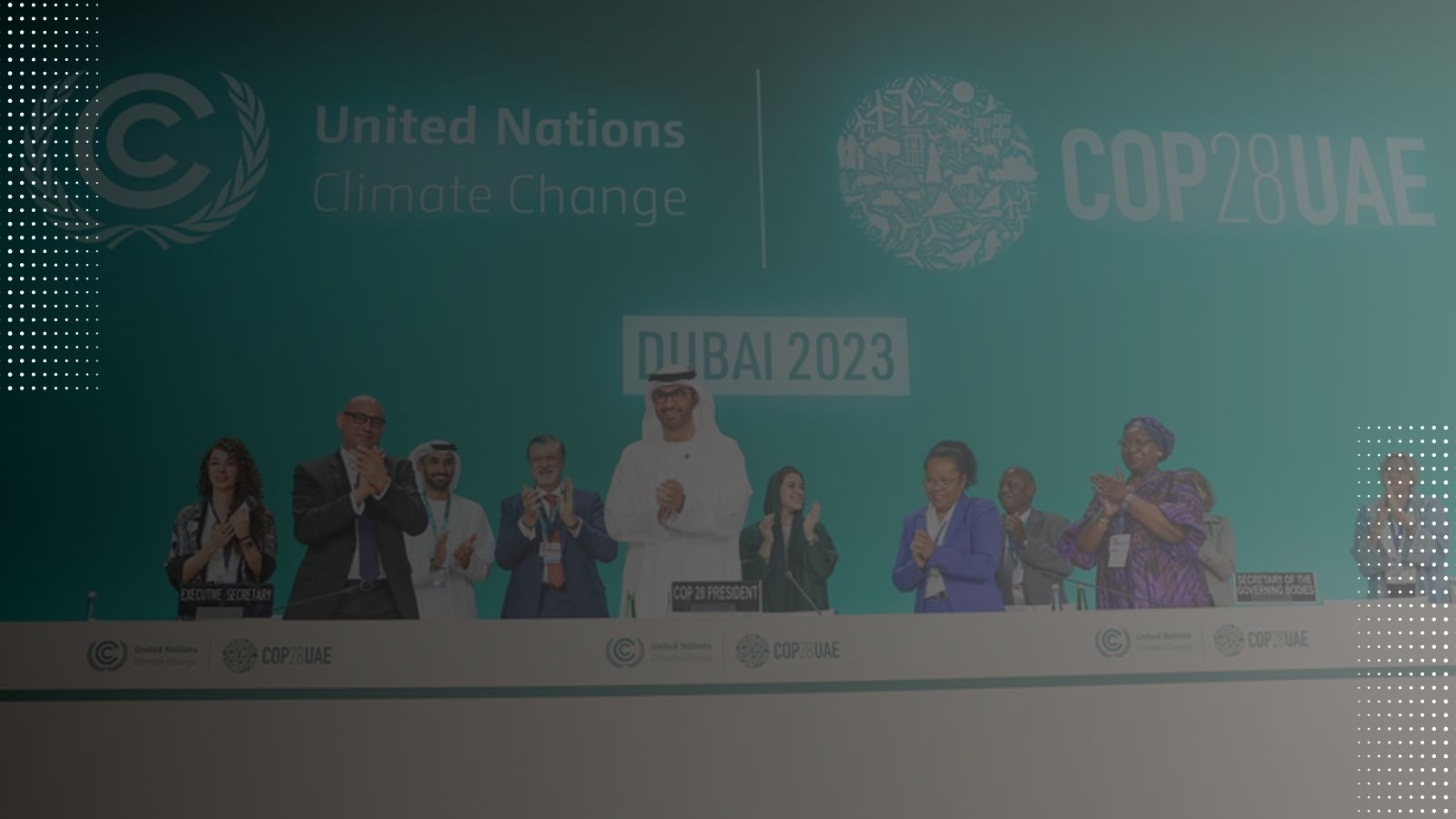At COP28, the United Arab Emirates government and company executives launched the Global Decarbonization Charter (OGDC), which aims to reduce the greenhouse gas pollution of 50 major oil and gas companies, including 29 Nationally Owned Companies (NOCs).
Under the initiative, companies will set their own emissions reductions plans and meeting targets is voluntary. There is no penalty for not meeting self-imposed goals, for example on the continuation of gas flaring.
Signatories also committed to near zero methane emissions by 2030 and to eliminate routine flaring by 2030.. However, these fall short of what is needed to reach the Paris Agreement goals of limiting global warming to well below 2°C and pursuing efforts to limit global temperature increase to 1.5°C.Environmentalists have raised concerns that the launch of the Charter is more about protecting fossil fuel interests, than a real commitment to genuine change.
UN Secretary General Antonio Guterres expressed his disappointment with the Charter: “The fossil fuel industry is finally starting to wake up, but the promises made clearly fall short of what is required.”
Easy targets
While the Charter has been open about commitment to taper emissions derived from the energy the companies purchase, known as scope 1 and 2, the pledge does not include scope 3 emissions, which come from the end use of products such as burning petrol or cooking gas. Scope 3 emissions make up 80%-95% of total industry emissions.
“The Oil and Gas Decarbonization Accelerator is a dangerous distraction from the COP28 process,” said David Tong from Oil Change International.
The pledge also excludes any mention of ending exploration or curtailing new fossil fuel production, something that must happen if climate targets are to be met.
Voluntary pledges repeated
Overall, the Alliance is similar in approach to the Oil and Gas Climate Initiative (OGCI) which launched nearly a decade ago, and to many companies pre-existing emissions reductions plans. These initiatives and plans are all voluntary. There is no penalty for not meeting self-imposed targets
Fossil fuel interests
Members of the Global Decarbonization Charter have also made a number of other commitments, including support for the Paris Agreement and improving transparency and reporting.
As the CEO of the Abu Dhabi National Oil Company (ADNOC), Dr. Al Jaber’s appointment as President of the world’s most important climate summit has raised many eyebrows. Despite backing greater ambition on renewable energy and emission reductions, he has made a number of comments showing he believes fossil fuels will still have a role to play long into the future.
Reinforcing the agency of the oil and gas industry to decarbonize itself
Companies often try to anticipate regulation and seek to be ahead of it. By proactively announcing the speed at which it will decarbonize, the oil and gas industry seeks to reinforce its own agency to tackle climate change.
For an industry with billions in sunk investments in oil and gas infrastructure, this is preferable to a government regulated phase out of fossil fuels. The full list of signatories to the Oil and Gas Decarbonization Charter from UAE COP28 press release:
NOCs: ADNOC, Bapco Energies, Ecopetrol, EGAS, Equinor, GOGC, INPEX Corporation, KazMunaiGas, Mari Petroleum, Namcor, National Oil Company of Libya, Nilepet, NNPC, OGDC, OMV, ONGC, Pakistan Petroleum Limited (PPL), Pertamina, Petoro, Petrobras, Petroleum Development Oman, Petronas, PTTEP, Saudi Aramco, SNOC, SOCAR, Sonangol, Uzbekneftegaz, ZhenHua Oil, YPF.
IOCs: Azule Energy, BP, Cepsa, COSMO Energy, Crescent Petroleum, Dolphin Energy Limited, Energean Oil & Gas, Eni, EQT Corporation, Exxonmobil, ITOCHU, LUKOIL, Mitsui & Co, Oando plc, Occidental Petroleum, Puma Energy (Trafigura), Repsol, Shell, TotalEnergies, Woodside Energy Group.






